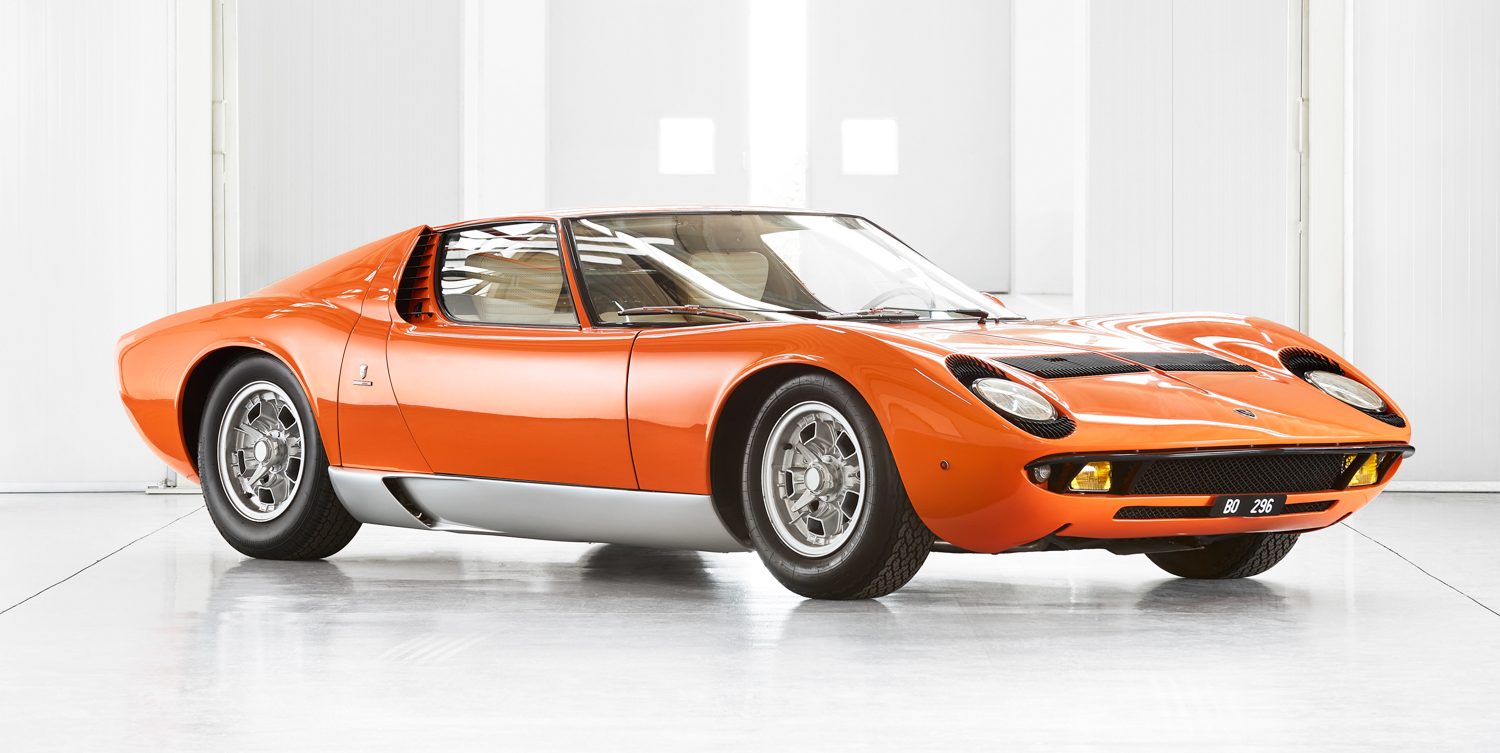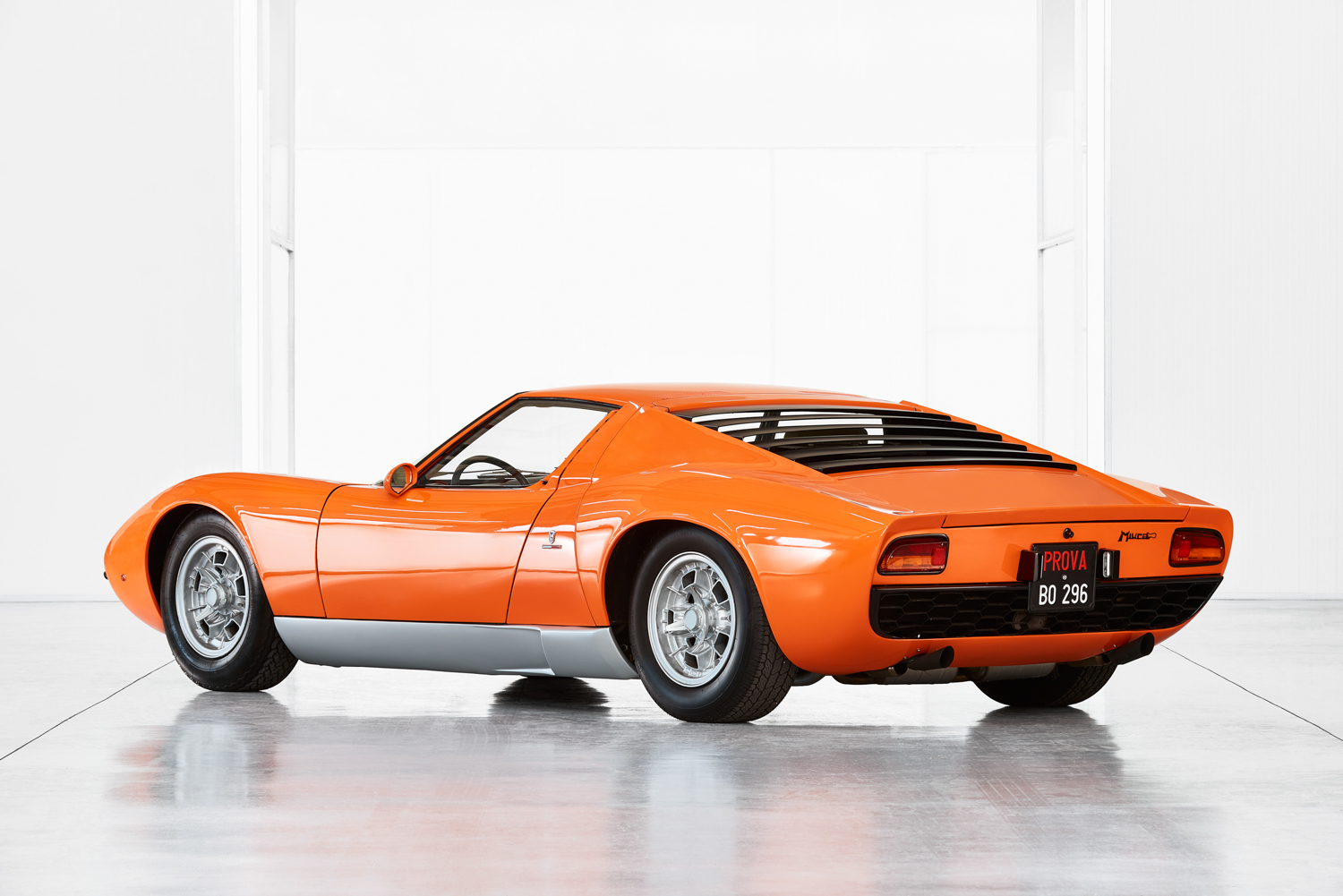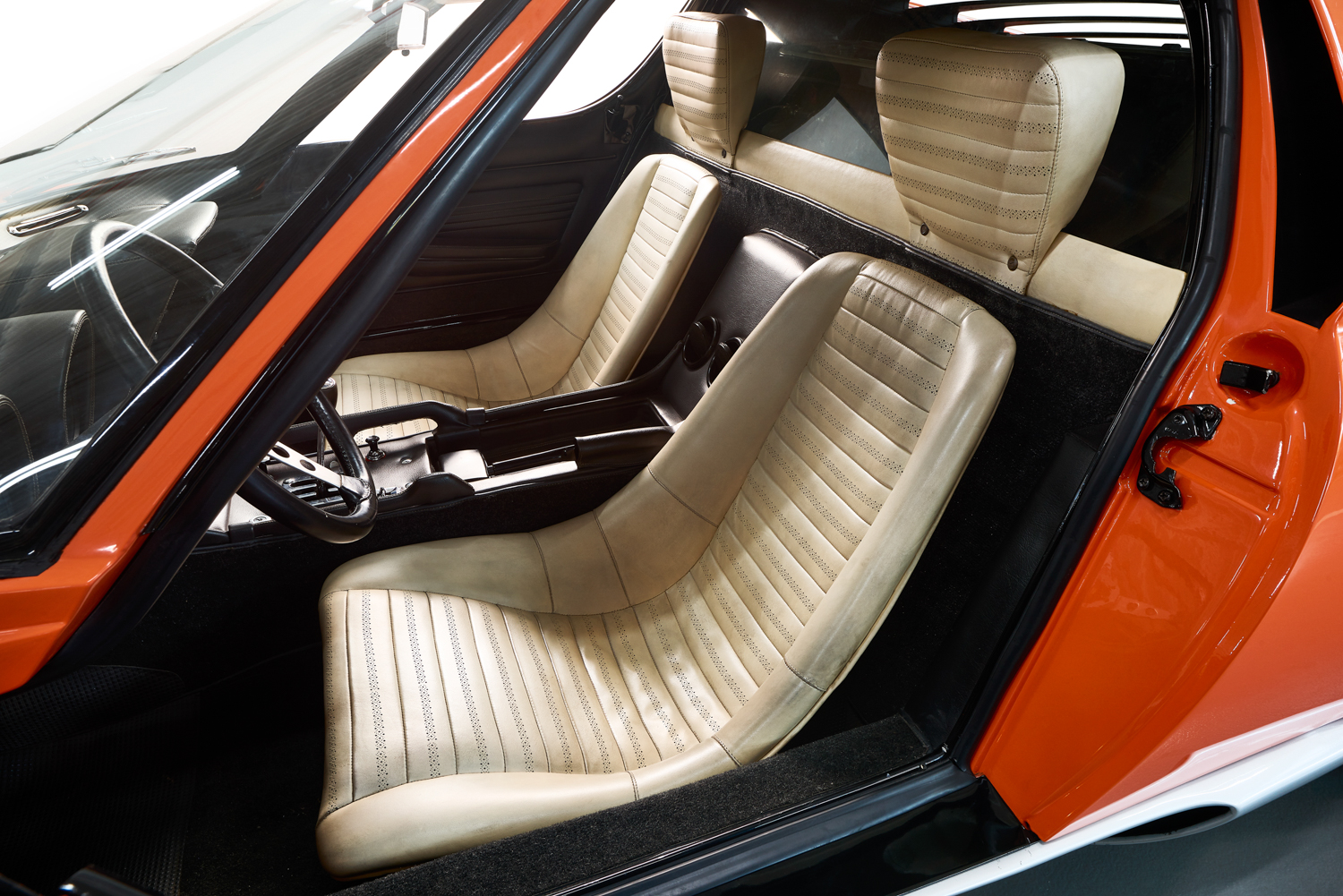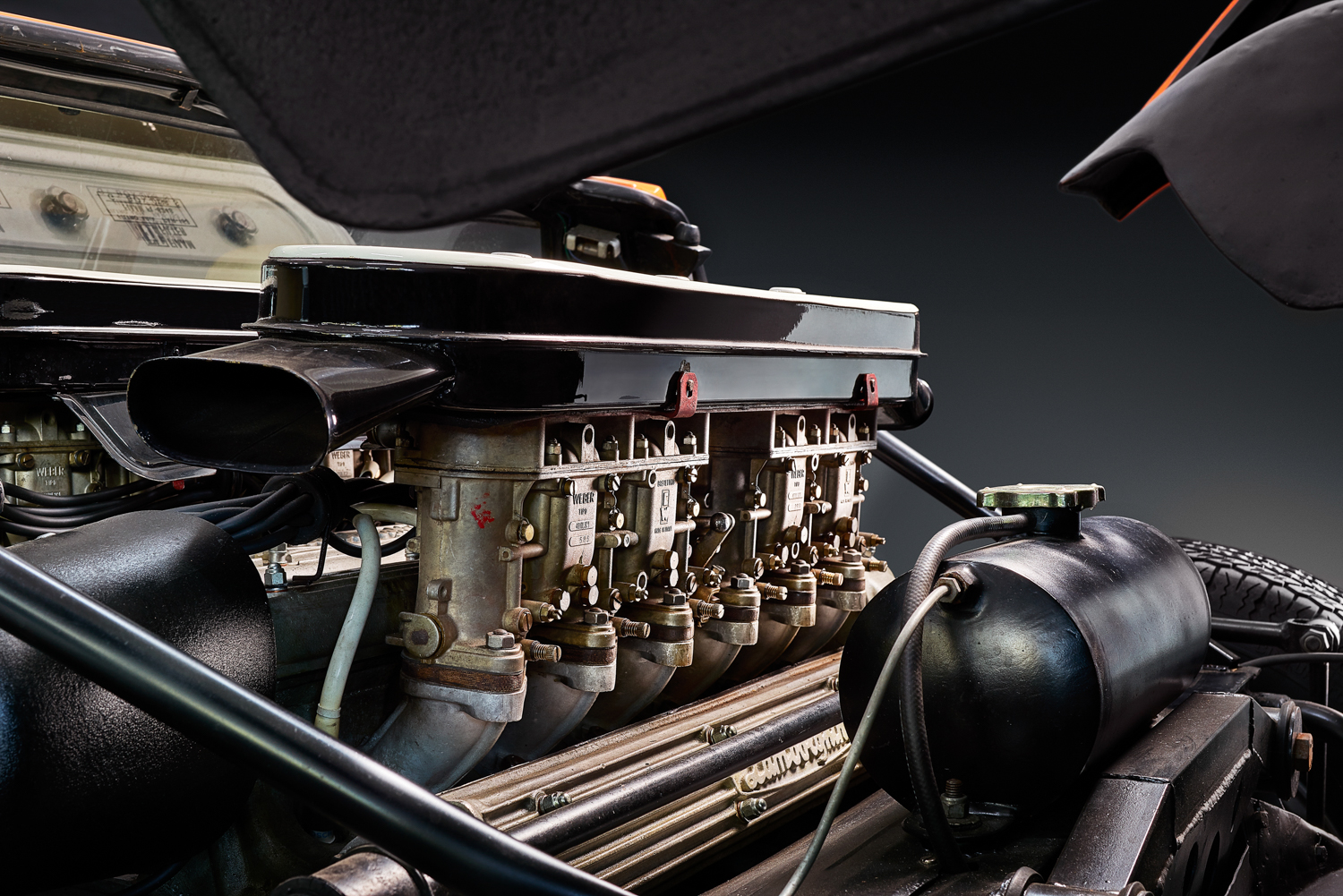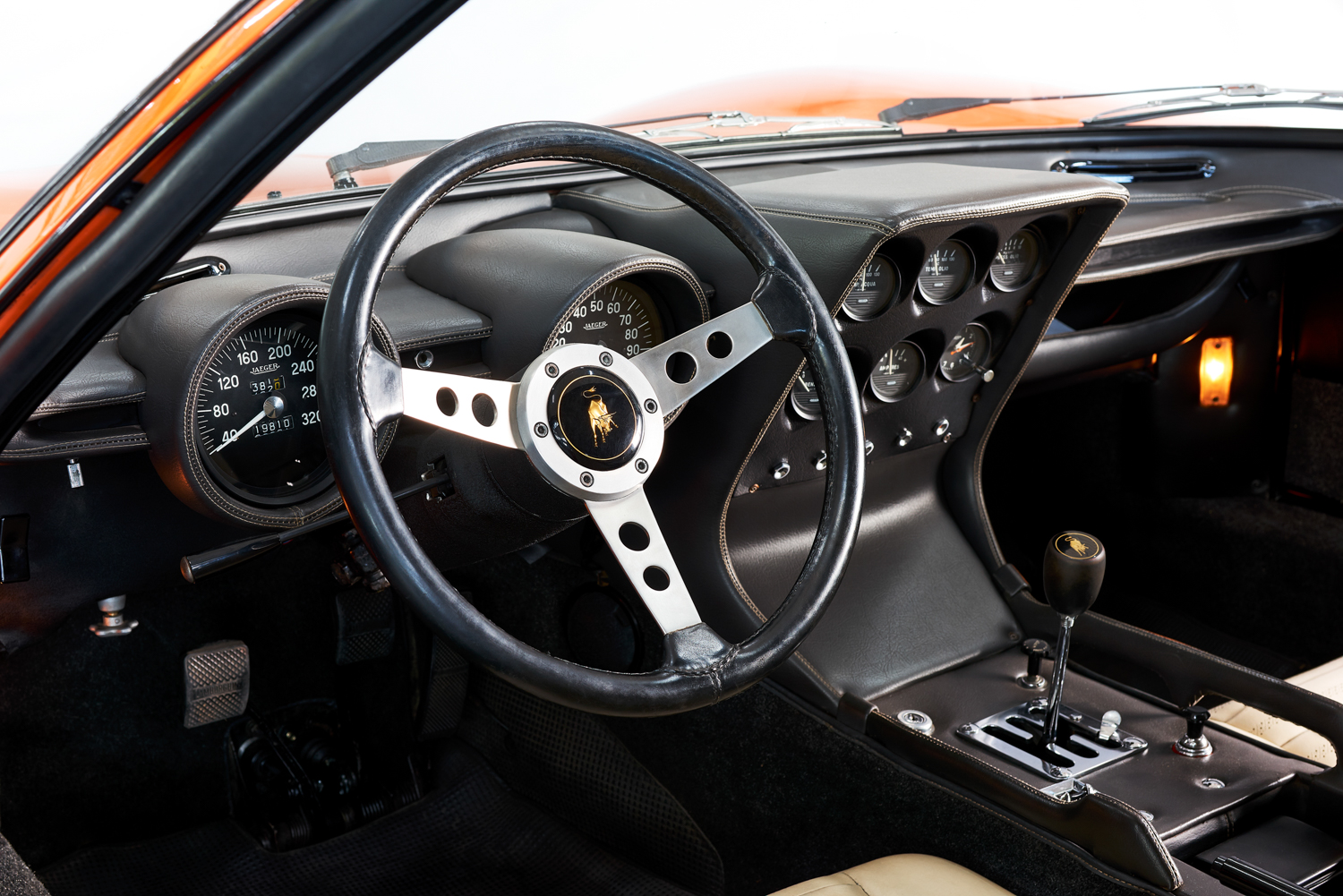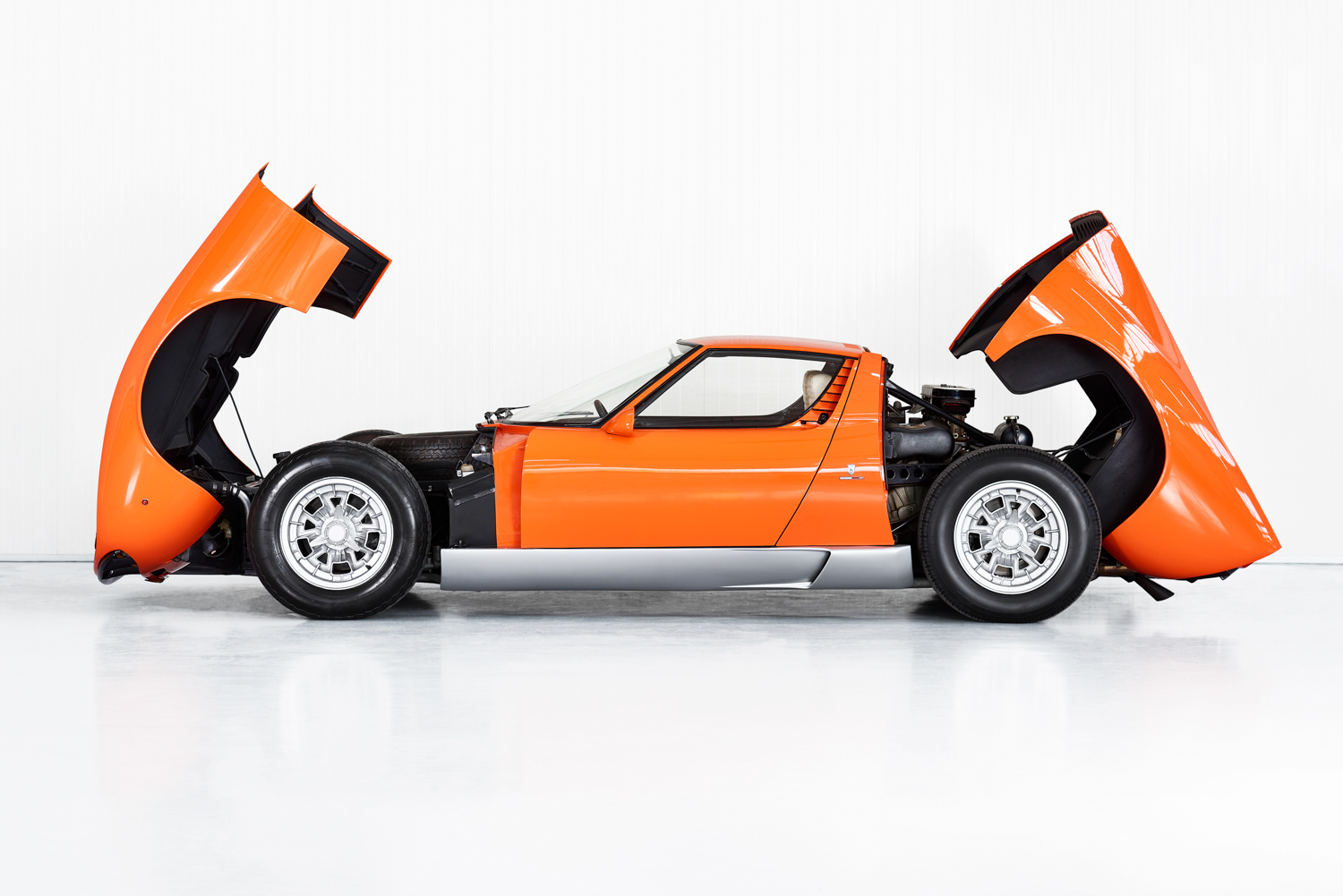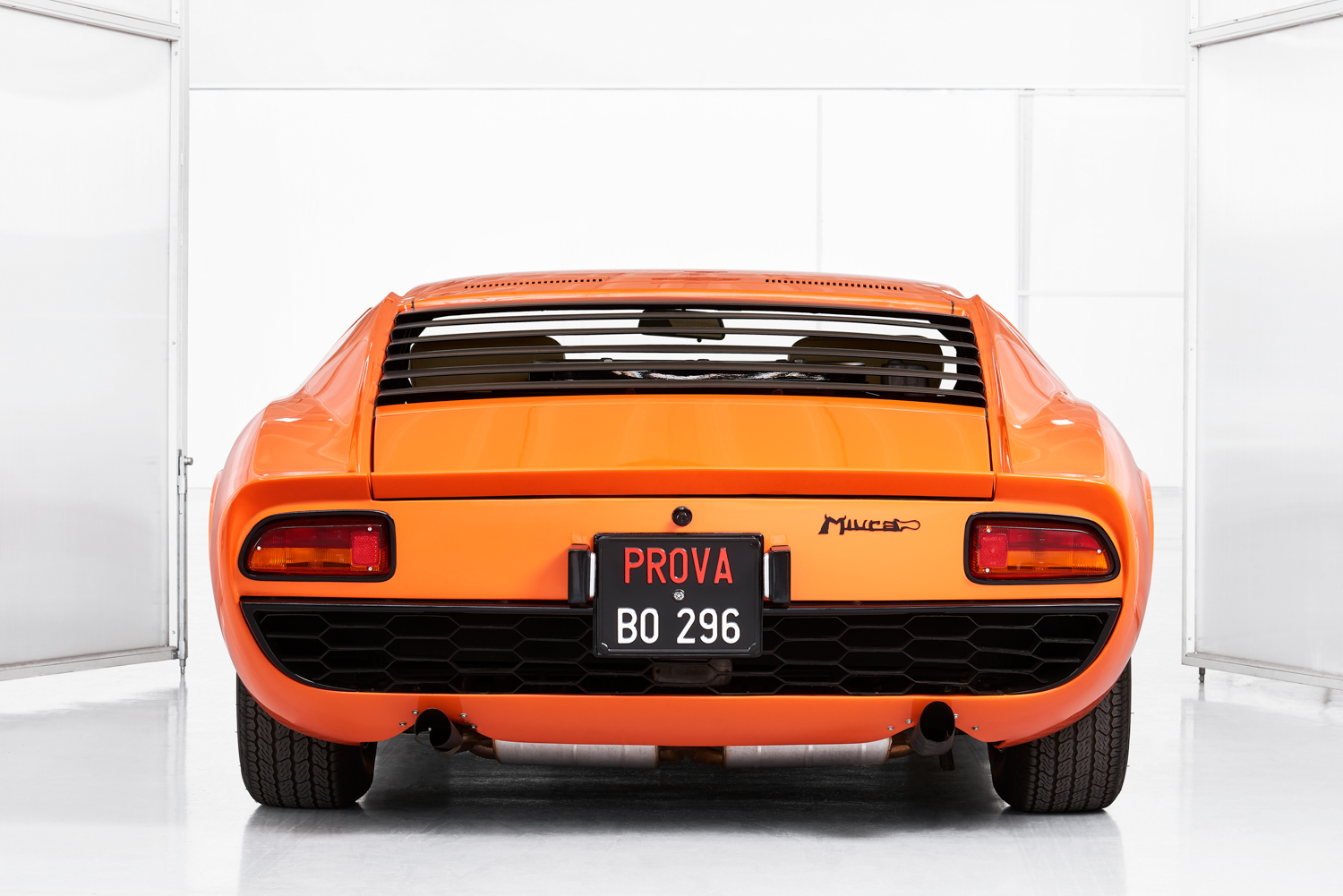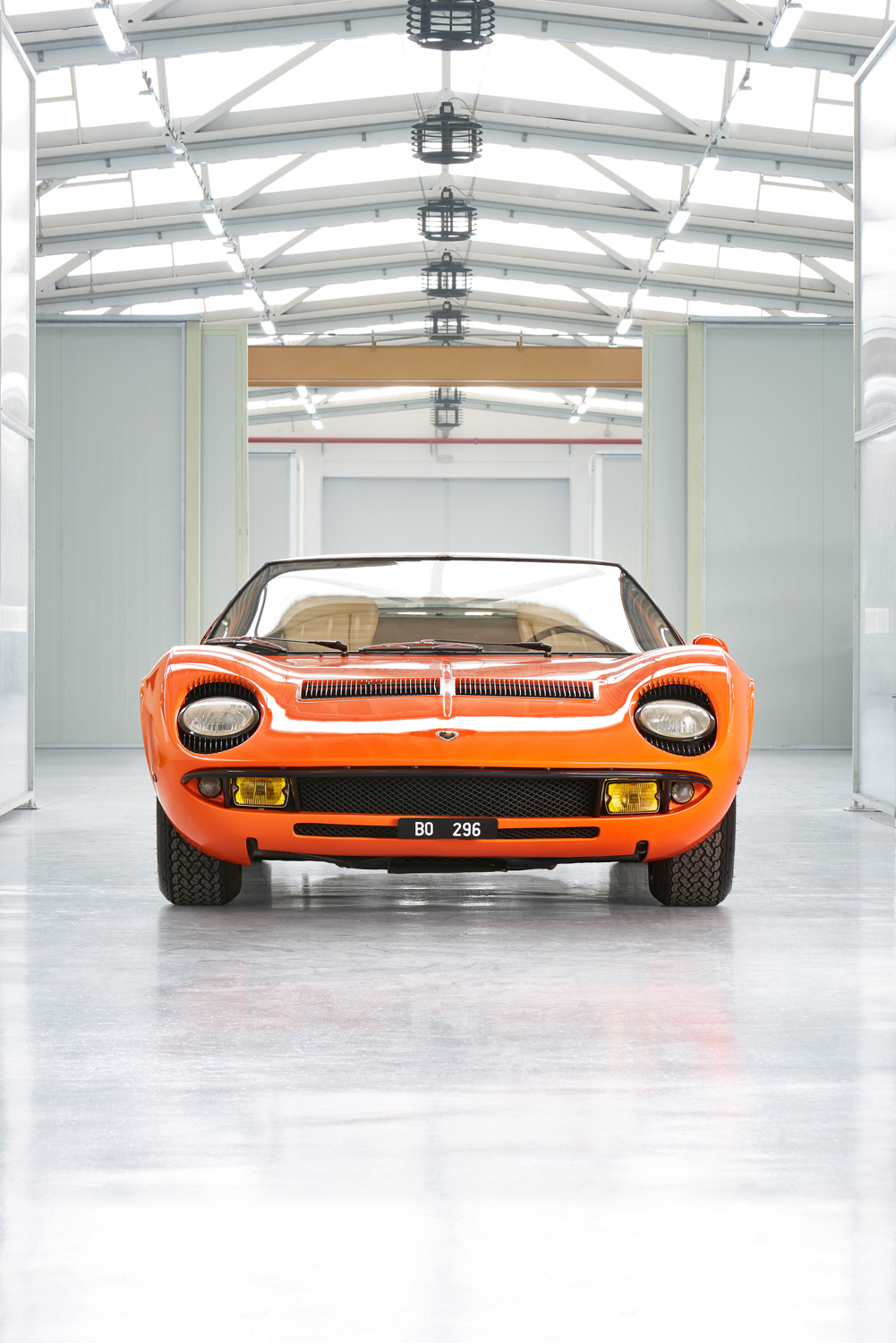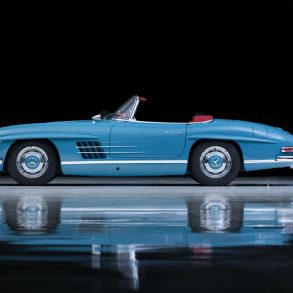
The orange Miura P400 (technically “Arancio Miura”) with white/black leather interior has been pehaps the most pursued Miura in recent decades: it appears at the start of the film, driven by the actor Rossano Brazzi on the Great St Bernard Pass. In the movie plot, the car is destroyed, but nobody would have really ruined what was one of the most desired cars of the time. In reality, Paramount used a stand-in.
Just a few years after the film’s release, once it had been established that the car used in filming was not the one destroyed in the on-screen accident, a hunt began to find the opening-scene Miura. Over the following five decades, enthusiasts and collectors from around the world searched and amassed numerous and sometimes conflicting clues. The current owner of this historic example, The Kaiser Collection of Vaduz (Liechtenstein), decided to consult Lamborghini Polo Storico in an attempt to give, once and for all, a chassis number to the Miura driven by Brazzi.
The car was sent to Lamborghini’s specialist historic department at its Sant’ Agata Bolognese headquarters, where Polo Storico’s reconstruction started from documentation in the company archives and from examining the car. The results were then supplemented with testimonies from enthusiasts and former employees, such as Enzo Moruzzi, who delivered the car to the set and drove it in all the shots as a stunt double. By doing this, Polo Storico was able to find the missing evidence and certify that the Miura P400, chassis #3586, was exactly the one used to shoot “The Italian Job.” This recognition comes at the same time as the 50th anniversary celebrations of the film, released in June 1969.
The film production company, Paramount Pictures, approached Automobili Lamborghini for a car to use for the filming. Once they got to Sant’Agata Bolognese they decided on an orange-colored Miura, which was already heavily damaged and therefore perfect for the accident scene. At the same time, Lamborghini provided a second car of the same color for the shoot. It was Enzo Moruzzi who took the car to the set; in those days, he often delivered cars to the most important clients or onto film sets.
Moruzzi recalls, “There was a Miura P400 almost ready on the production line, in the right color, left-hand drive and with white leather interior. It was aesthetically identical to the damaged one and we decided to use it for the film. The only thing worrying us was the elegant white leather seats, given that car had to get back to Sant’Agata in perfect condition. So, I asked for them to be taken out, replacing them with a set of black leather seats that we used for testing. The giveaway was the headrests, which on the Miura are attached to the dividing glass between the driver compartment and the engine compartment, which couldn’t be replaced in time. In the film, you can see the original white headrests.”
At the end of filming, and once it had returned to the factory, the Miura from the film was prepared for delivery to its first owner, an Italian from Rome. After almost 50 years, and having passed through the hands of different enthusiasts, both Italian and international, the P400 was bought in 2018 by the current Liechtenstein collector, Fritz Kaiser, who is also the Founder of “The Classic Car Trust.”
Lamborghini Polo Storico, inaugurated in 2015, is Automobili Lamborghini’s department dedicated to preserving the heritage of the House of Sant’Agata Bolognese. Its activities include the restoration and certification of all Lamborghinis produced up to 2001, as well as the reconstruction of spare parts for classic Lamborghinis, for which more than 200 new code numbers were introduced in 2018 alone. Polo Storico also conserves and manages the company archives to support the preservation of all classic Lamborghini cars.
For more information visit https://www.lamborghini.com/en-en/ownership/polo-storico


